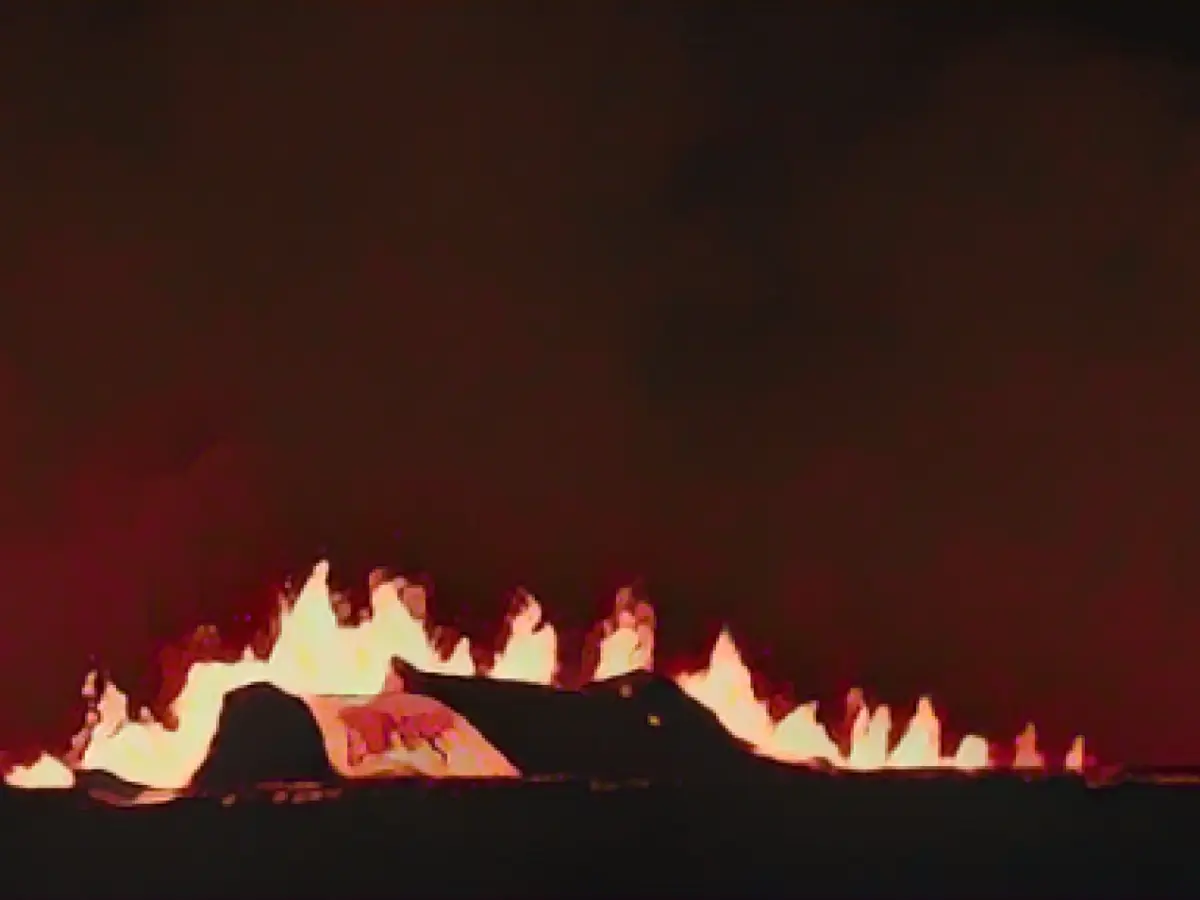Volcanic eruption in Iceland appears to be stabilizing, according to weather experts
According to the weather experts, a similar development had already been observed at the beginning of previous eruptions. The volcano erupted late Monday evening near the municipality of Grindavik on the Reykjanes peninsula. According to the Icelandic weather service, the fissure currently measures four kilometers in length.
There had been a series of earthquakes in the region in November, which is why a volcanic eruption was expected. The authorities declared a state of emergency and evacuated the village of Grindavik, which has a population of 4,000. Since then, residents have only been allowed to return to their homes at certain times.
Following the outbreak, all roads around Grindavik were closed and, according to the police, will remain so for the next few days. There is therefore no danger to the population.
A temporary red alert was issued for aviation, but this was then downgraded to orange. Airport operator Isavia stated on its website that there were currently no disruptions to take-offs and landings at the capital's international airport in Keflavik.
The head of Iceland's civil protection, Vidir Reynisson, warned on local TV station RUV that the eruption was not a tourist attraction. In previous years, eruptions in the area had attracted almost 680,000 visitors, according to estimates by the country's tourism authority.
The current volcanic eruption is the fourth in Iceland in two years. According to volcanologists, the new cycle of eruptions on the Reykjanes peninsula could last for decades. With more than 30 active volcanic systems, Iceland is the largest and most active volcanic region in Europe. The island state lies on the so-called Mid-Atlantic Ridge, which separates the Eurasian and North American tectonic plates.
Read also:
- This will change in December
- Attacks on ships in the Red Sea: shipping companies avoid important trade route
- USA forms military coalition against Houthi attacks on ships in the Red Sea
- German activists speak out in Dubai on suffering in Israel and the Gaza Strip
The volcanic activity in Reykjanes, where Grindavík is located, has been a concern for weather experts due to a series of earthquakes in November. During the volcanic eruption, the fissure measuring four kilometers in length was observed by the Icelandic weather service. The authorities had declared a state of emergency and evacuated the village, but since then, residents have been allowed to return to their homes at certain times.
Despite the orange alert for aviation, the capital's international airport in Keflavik has no disruptions to take-offs and landings. The present volcanic eruption marks the fourth in Iceland in two years, with volcanologists predicting that the new cycle on the Reykjanes peninsula could last for decades. Iceland, being the largest and most active volcanic region in Europe, lies on the Mid-Atlantic Ridge, separating the tectonic plates.
Weather experts had seen signs of stabilization in previous eruptions and are now observing similar developments with the volcano near Grindavik. The excitement from tourists regarding eruptions in the past, which had attracted more than 680,000 visitors, is discouraged by the head of Iceland's civil protection.
Source: www.stern.de







